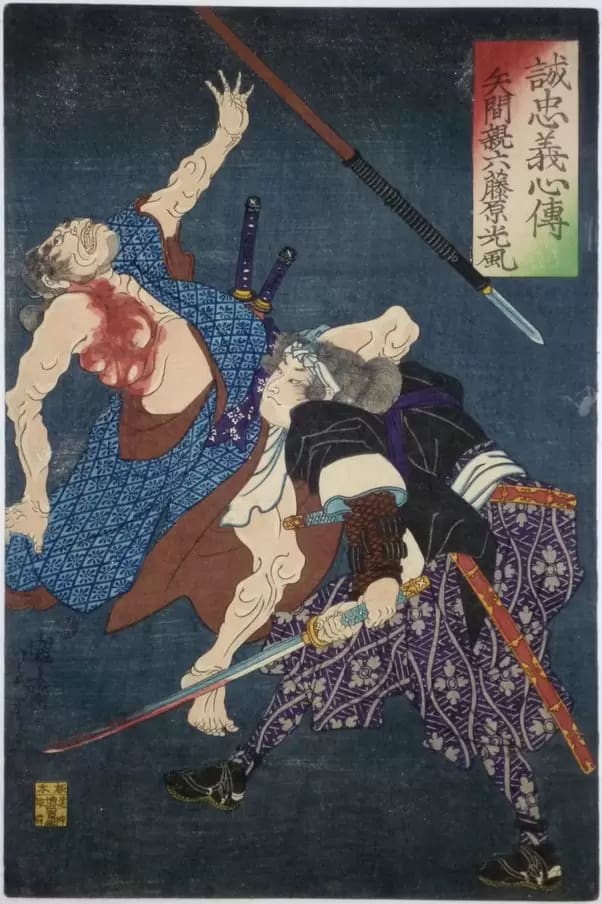The use of the verb to “butcher” something always conjures up visions of crazed randomness. It seems to me to have implications of pure chance, of berserk warriors uncaring of their actions, merely using the weapons they have to hand, axe, sword, blade, whatever, to hack — into small pieces — anyone unfortunate enough to come before them. Yet the high-street butcher would sell nothing if that was how he presented the results of breaking down the carcass, into the meats, the joints, the cuts to his customers. They much prefer these items properly intact, each piece where it should be in relation to its neighbour. If they’d wanted a mish-mash of meat they could simply have thrown the animal into a giant blender or even utilise, like a scene from a Coen Bros. film, a wood-chipper, catching the bloodied, crunched up bones and viscera, spat out of the business end, straight into a stew pot.

Rather, I think of them as skilled assassins, maybe using a stiletto…
“The stiletto was preferred by assassins as it was silent, easily concealed inside a sleeve or jacket… while inflicting mortal wounds that tended to bleed less than those made by other types of knives.”
…although the hobbling of an opponent, by the cutting of the Achilles tendon with a swift slice across the back of the opposing giant’ lower leg, reminds me of watching how the beef cows are broken down in an abattoir or butchers, using free gravity to help the knife that’s cutting away along the bone to enhance its magic, the meat almost peeling away as Earth drags it downwards.
Or better still, in their expertise and quiet, often unseen (although you’re less likely to be asleep, unseeing, under general anaesthetic, at the local shop, I accept that) competence, they resemble surgeons, scalpel to hand, delicately excising the damaged or diseased tissues whilst retaining, uncut, the rest of the body they work on.
Cook Ding was cutting up an ox for Lord Wenhui. As every touch of his hand, every heave of his shoulder, every move of his feet, every thrust of his knee — zip! zoop! He slithered the knife along with a zing, and all was in perfect rhythm, as though he were performing the dance of the Mulberry Grove or keeping time to the Jingshou music.
“Ah, this is marvelous!” said Lord Wenhui. “Imagine skill reaching such heights!”
Cook Ding laid down his knife and replied, “What I care about is the Way, which goes beyond skill. When I first began cutting up oxen, all I could see was the ox itself. After three years I no longer saw the whole ox. And now — now I go at it by spirit and don’t look with my eyes. Perception and understanding have come to a stop and spirit moves where it wants. I go along with the natural makeup, strike in the big hollows, guide the knife through the big openings, and following things as they are. So I never touch the smallest ligament or tendon, much less a main joint.
“A good cook changes his knife once a year — because he cuts. A mediocre cook changes his knife once a month — because he hacks. I’ve had this knife of mine for nineteen years and I’ve cut up thousands of oxen with it, and yet the blade is as good as though it had just come from the grindstone. There are spaces between the joints, and the blade of the knife has really no thickness. If you insert what has no thickness into such spaces, then there’s plenty of room — more than enough for the blade to play about it. That’s why after nineteen years the blade of my knife is still as good as when it first came from the grindstone.
“However, whenever I come to a complicated place, I size up the difficulties, tell myself to watch out and be careful, keep my eyes on what I’m doing, work very slowly, and move the knife with the greatest subtlety, until — flop! the whole thing comes apart like a clod of earth crumbling to the ground. I stand there holding the knife and look all around me, completely satisfied and reluctant to move on, and then I wipe off the knife and put it away.”
“Excellent!” said Lord Wenhui. “I have heard the words of Cook Ding and learned how to care for life!”
Zhuangzi (Chuang Tzu) (369-286)
Translated by Burton Watson (1925-2017)
I leave you with this rather lovely short film from 1969, “The London Nobody Knows”.